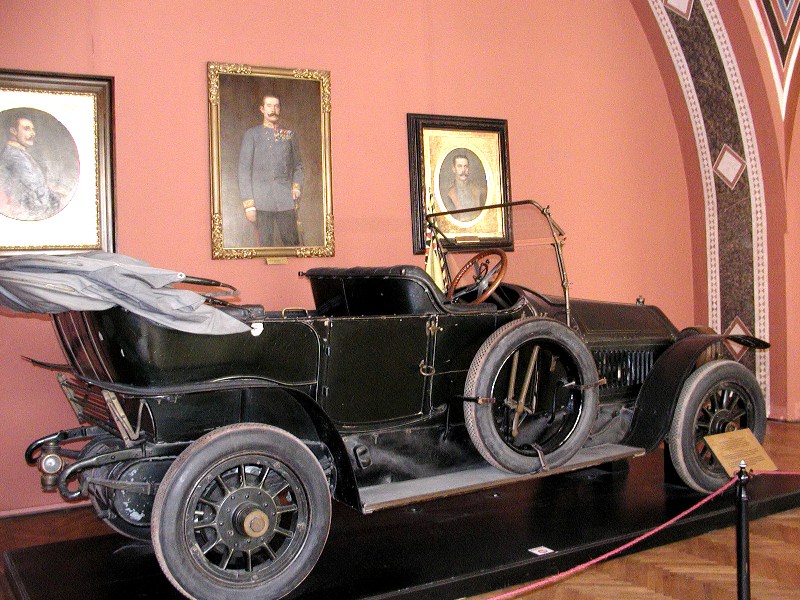 |
| Austro-Hungarian Archduke Franz Ferdinand and his wife Sophie leave Sarajevo City Hall on June 28, 1914. © JU Muzej Sarajevo/Washington Post/Reuters |
Today marks the 100th anniversary of the assassination of Archduke Franz Ferdinand, on June 28 1914, in Sarajevo. This was the day, a century ago, when the world began hurtling towards the Great War. Though the conflict would not begin officially until August, we might say that the Archduke and his wife, Sophie, were the first Ghosts of 1914.
As I mentioned in my earlier post, hstry.org has held a fantastic Twitter reenactment of the assassination today, related from the perspective of a journalist who was there at the time. You can review their posts from today here:
 |
| The Archduke and Sophie shortly before the assassination, June 28, 1914 © IWM (Q 79761) |
There are many other resources for those seeking more about what happened on this dreaded day, one hundred years ago. A selected few, for those new to this history and for seasoned sleuths:
There is also news of the centenary observations, some of which have provoked serious controversy due to the persistent instability that WWI brought to Eastern Europe.
And for those of us who wonder what might have been, had this day's ancestor (June 28, 1914) been no more remarkable to us today than any other, several writers have written or explored alternate histories. These are just a few:
- The Telegraph: What if Archduke Franz Ferdinand had Lived?
- Richard Lebow: The Archduke Lives!
- NY Times: If Franz Ferdinand Had Lived
 |
| 1911 Gräf & Stift open car in which Archduke Ferdinand was killed. Military History Museum in Vienna, Austria. |
There is something so compelling about asking what our world would be like if, at the conclusion of that day in Sarajevo, the car bearing the Archduke and his party had simply returned to the train station in Sarajevo and nothing more of deep significance had been recorded. We'd like to think that the millions of Great War casualties would never have happened, that so many lives cut short or harmed by the four years of strife and its aftermath could have remained untouched, undisturbed, and that a gentler course of history might have run peacefully through the first decades of the twentieth century. Perhaps this could have happened. But I think the most useful aspect of such dreams of a peaceful 1914-1918 is the waking from them, with eyes open to modern conflict and searching for the way to peace.
Yours,
Fiona
© Fiona Robinson
No comments:
Post a Comment